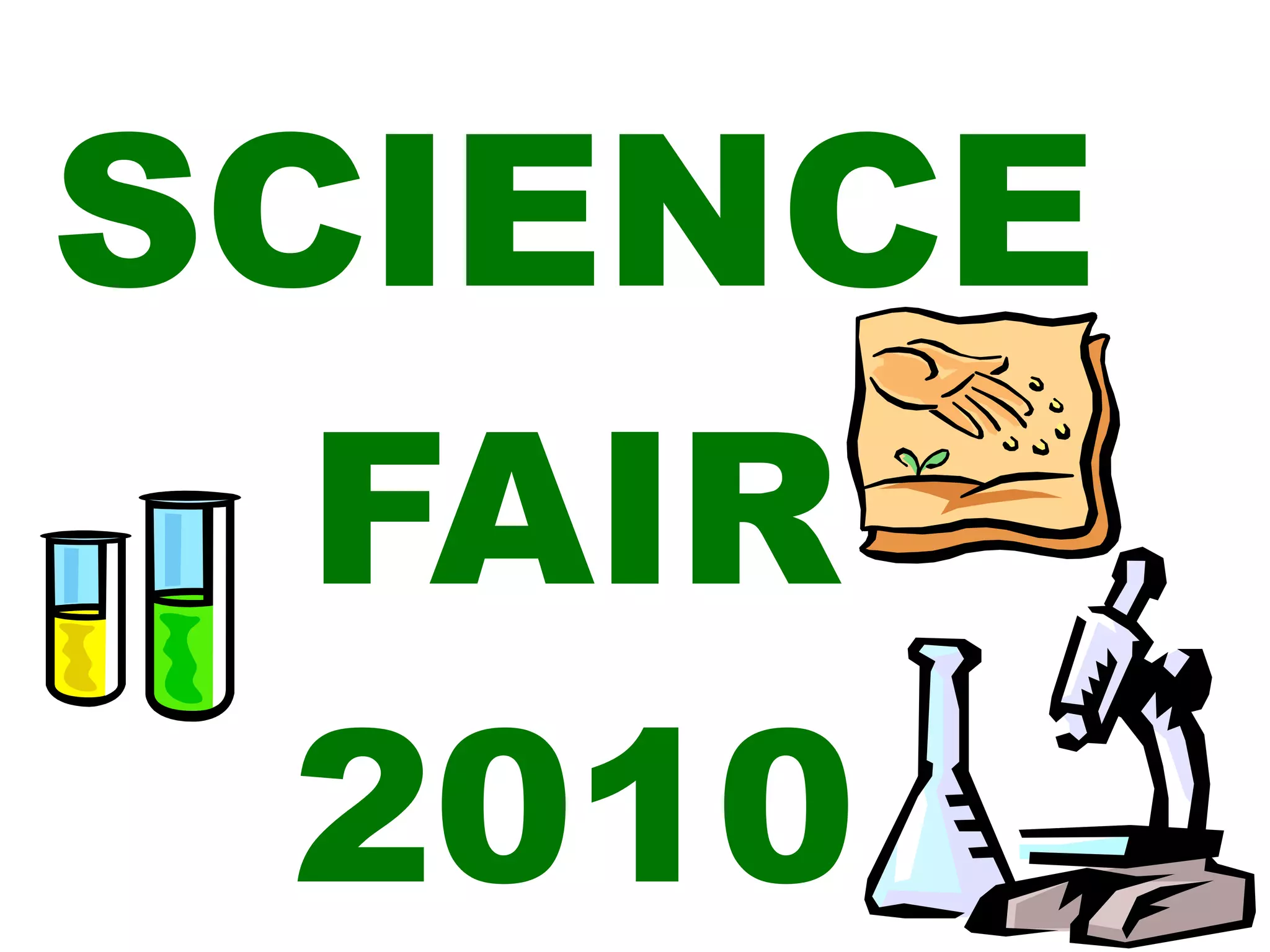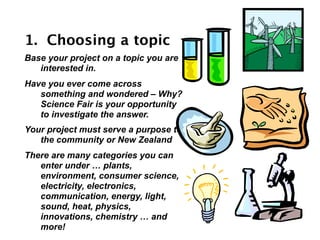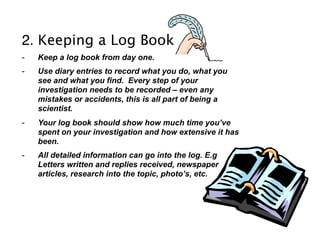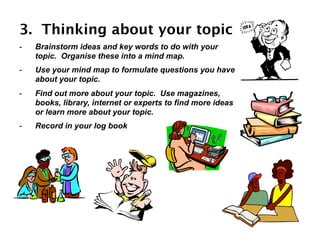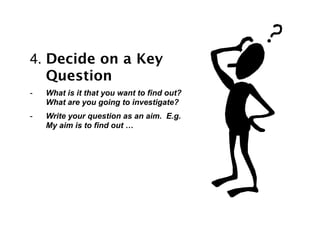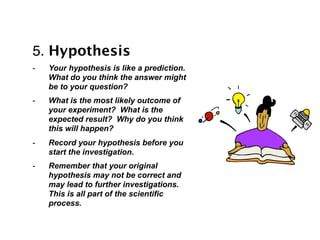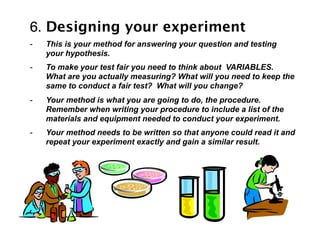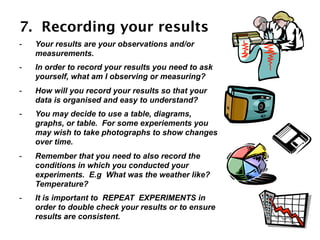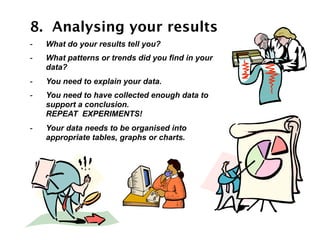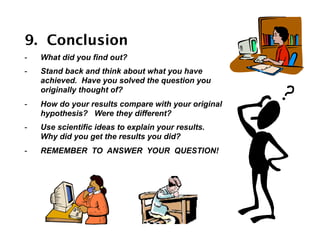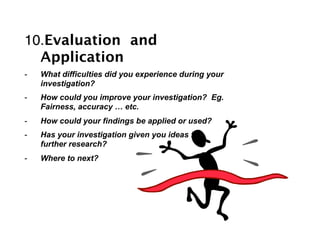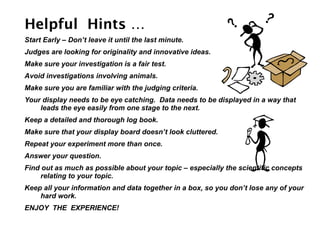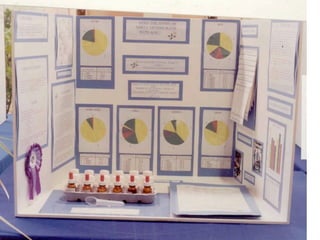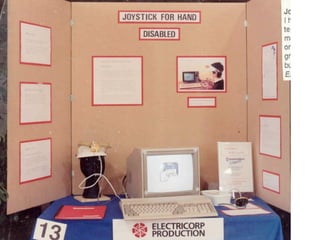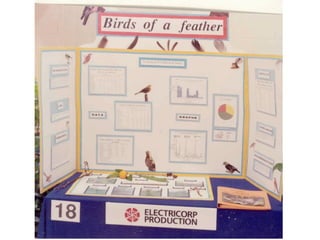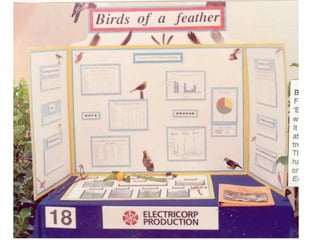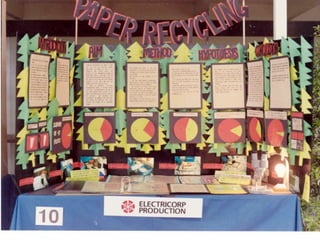This document provides guidance for students participating in a science fair. It outlines 10 key steps: 1) choosing an interesting topic, 2) keeping a detailed log book, 3) researching the topic in depth, 4) forming a clear key question, 5) making a hypothesis, 6) designing an experiment with variables, 7) recording organized results, 8) analyzing patterns in the results, 9) drawing a conclusion that answers the original question, and 10) evaluating the investigation and considering applications and further research. Repeating experiments, displaying results clearly, and thoroughly answering the original question are emphasized.
